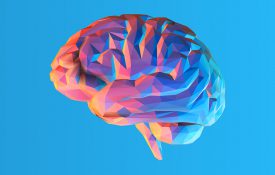-
Pretend play is less beneficial for early child development than play that’s rooted in real life
Child-raising and early education would do well to shift towards play, books, and visual media that are more rooted in real life. Young children—particularly those aged over three years—often prefer these things to pretend play that involves fictional characters, cartoons, and fantasy. Play that’s based on what adults do can enhance early child development. This advice challenges Western beliefs that fictional, pretend play is central to early child development and the growth of individual creativity. No strong evidence supports the idea that pretend play based on fiction or fantasy has a unique, causal role in creativity. And some evidence suggests that it can disrupt children’s thinking.
-
Suicide rate up 33% in less than 20 years, yet funding lags behind other top killers
More than 47,000 Americans killed themselves in 2017, the Centers for Disease Control and Prevention reported Thursday, contributing to an overall decline in U.S. life expectancy. Since 1999, the suicide rate has climbed 33 percent. Americans are more than twice as likely to die by their own hands, of their own will, than by someone else's. But while homicides spark vigils and protests, entering into headlines, presidential speeches and police budgets, suicides don't. Still shrouded in stigma, many suicides go unacknowledged save for the celebrities – Robin Williams, Kate Spade, Anthony Bourdain – punctuating the unrelenting rise in suicide deaths with a brief public outcry.
-

Solving 21st-Century Problems Requires Skills That Few Are Trained In, Scientists Find
Tackling modern problems requires individuals who have the unique social and cognitive skills that allow for collaborative problem solving, say authors of a new report in Psychological Science in the Public Interest.
-

Bigger Brains Linked With Slightly Better Cognitive Performance
Using a larger dataset than all previous studies on the subject combined, researchers found a small connection between brain size and cognitive performance.
-
The Right Way for Parents to Question Their Teenagers
Any parent of a teenager knows that it can be a struggle to get them to open up. It’s natural for adolescents to pull away from their parents as they begin to build their own identities and test their burgeoning independence. But a growing body of research finds that maintaining open communication with adolescents is crucial to their mental health and well-being. Teens who disclose their daily activities and inner feelings to a parent tend to have lower levels of anxiety and depression and are less likely to engage in risky behaviors. How should parents handle these years?
-
Psychologists who studied shame around the world say it’s an essential part of being human
There’s a school of thought that says shame is a social construct: We only learn to feel inadequate and exposed because our particular culture sends us messages about what falls outside the realm of acceptability. But an international group of psychologists and anthropologists are putting forward an entirely different theory: Perhaps shame is universal—an evolved mechanism that helps us avoid behavior that would make our social group stop valuing us.

